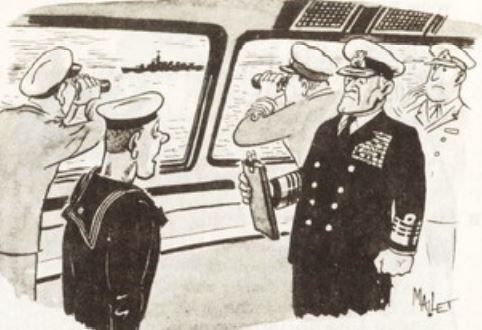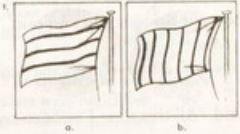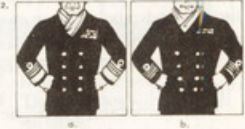
Two cruisers
 المؤلف:
L.A Hill
المؤلف:
L.A Hill
 المصدر:
Advanced steps to understanding
المصدر:
Advanced steps to understanding
 الجزء والصفحة:
32-1
الجزء والصفحة:
32-1
 6/9/2022
6/9/2022
 1076
1076

An old admiral was famous in the navy for his bad temper, so everyone tried hard not to annoy him. One week his ships were going to take part in a big international exercise, so he came on board in the evening, had his dinner and then went to bed. In the morning he had his breakfast early, came up to the bridge and examined the ships in his group carefully. Then he said angrily, "There should be two cruisers in this group, but I can only see one. Where's the other?" No one dared to answer, and this made the admiral even angrier. His face became redder and redder.
"Well?' he shouted, 'What are you fools hiding from me? Where's the second cruiser? What's happened to it? Answer me!'
At last a young sailor found enough courage to speak. Please, sir," he said, 'you're on it.'
A Which of these sentences are true (T) and which are false (F)? Write T or F in the boxes.
- Nobody wanted to annoy the admiral because he was a nice old man.
- His cruiser was going to take part in an exercise with ships of other countries.
- On the first morning he could not find the second cruiser.
- Nobody dared tell him that it had not arrived.
- At last a young sailor told him that the cruiser was hiding.
- The old admiral was on the second cruiser.
B Answer these questions.
- What had made the old admiral famous?
- What was the result?
- What did he do on his ship in the morning?
- What did he say?
- What happened?
- What did the admiral shout then?
- What did someone answer at last?
- What mistake had the admiral made?
C 1- Which of these two flags has horizontal lines (a. or b.)? Which has vertical lines (a. or b.)?

2- An admiral has a broad ring and three ordinary rings on his sleeves, and a captain has four ordinary rings. Which of these officers is the admiral (a. or b.)? Which is the captain (a. or b.)?

 الاكثر قراءة في Advanced
الاكثر قراءة في Advanced
 اخر الاخبار
اخر الاخبار
اخبار العتبة العباسية المقدسة


